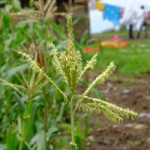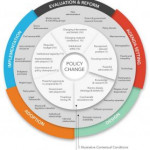Today, we are celebrating World Food Day to promote worldwide awareness and action for those who suffer from hunger and for the need to ensure healthy diets for all. The World Food Day theme for this year is Healthy Diets for a Zero Hunger World. As part of IFPRI's vision of a world free of >> Read more Source: Ethiopia Strategy Support Program
World Food Day
Today, we are celebrating World Food Day to promote worldwide awareness and action for those who suffer from hunger and for the need to ensure healthy diets for all. The World Food Day theme for this year is Healthy Diets for a Zero Hunger World. As part of IFPRI's vision of a world free of >> Read more Source: IFPRI Ethiopia: Ethiopian Strategy Support Program
Training: Food Security Policy Change – Application of the Kaleidoscope Model
IFPRI Pakistan collaborated with Pakhtunkhwa Economic Policy Research Institute (PEPRI) for day-long workshop in Peshawar where IFPRI’s Kaleidoscope Model of Policy Change was introduced and then utilized by participants to examine the likely drivers of change in policies in Khyber Pakhtunkhwa using practical case studies of current policy processes and attempted reforms. The training was >> Read more Source: Pakistan Strategy Support Program
The solution to water, energy, and food security challenges: Building Bridges!
October 1, 2019 Bassel Daher - Research Associate, Water-Energy-Food Nexus Research Group The grand challenges our world faces today - including growing water, energy, and food insecurities - are complex and tightly interconnected. Addressing them requires working across disciplines to develop innovative and multifaceted solutions that respond to their social, economic, technological, and policy dimensions. These solutions […] Source: IFPRI Egypt Country Office
IFPRI Board Names New Director General
Article re-posted from IFPRI.ORG. September 5, 2019, Washington, D.C. - The Board of Trustees of the International Food Policy Research Institute (IFPRI) announced today the appointment of Johan “Jo” Swinnen as the institute’s next Director General. Swinnen will begin his tenure on January 7, 2020, succeeding the current Director General, Shenggen Fan, who is completing his term. “Jo brings >> Read more Source: Pakistan Strategy Support Program
- « Previous Page
- 1
- …
- 45
- 46
- 47
- 48
- 49
- …
- 57
- Next Page »




